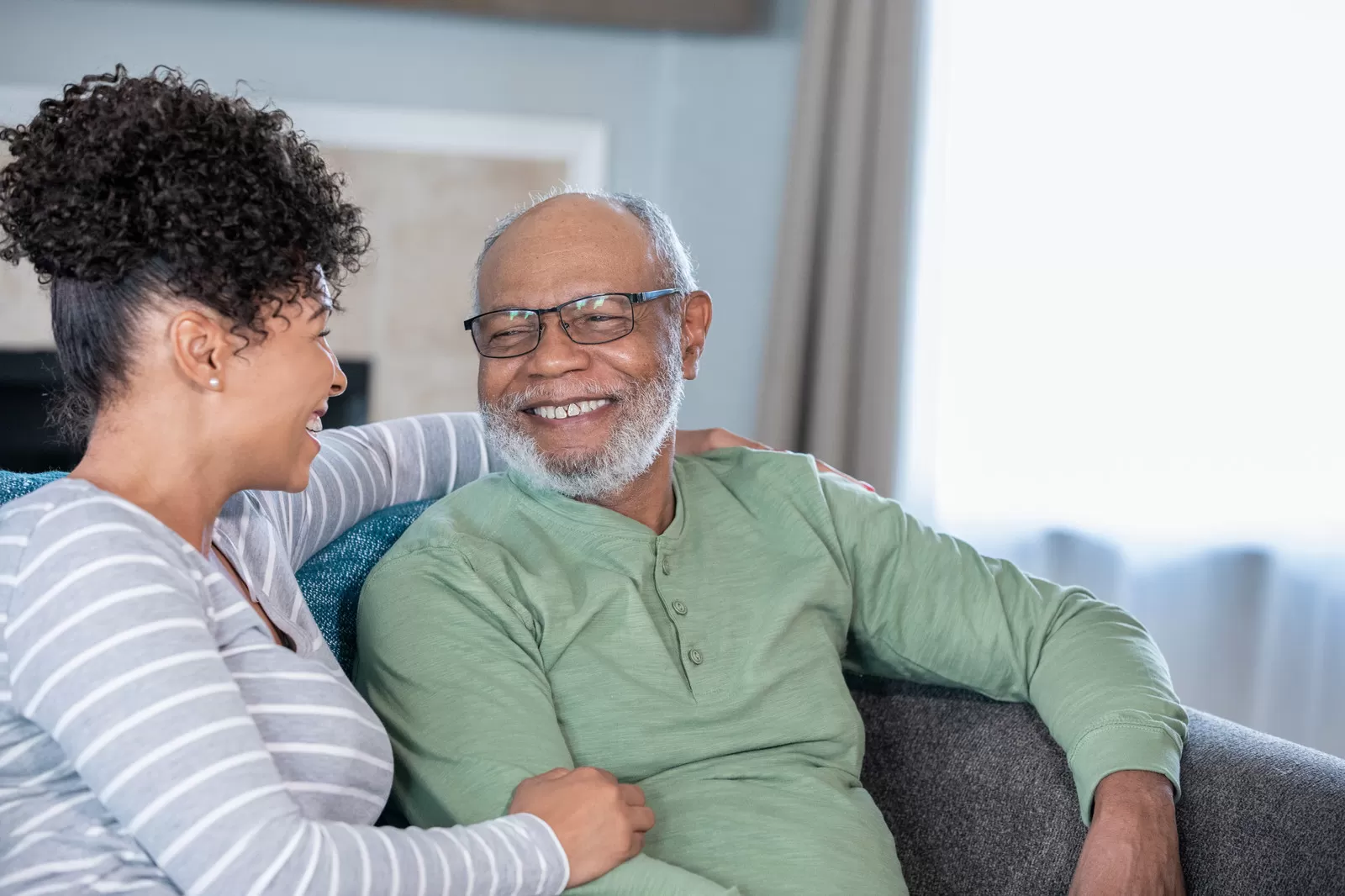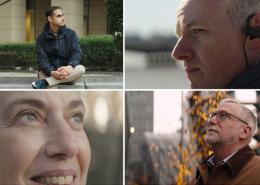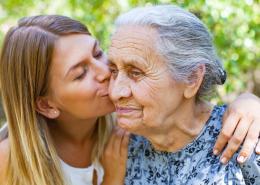Age: Addressing a Blind Spot in Cancer Care

In the last decade, we have seen breakthrough progress in our ability to help prevent, diagnose, and treat cancer. But today, too many people living with cancer still face barriers to timely and equitable care. At Pfizer, we’re focused on removing those barriers for all people living with cancer – including those over the age of 65 – to address disparities in cancer care and improve health equity.
Age is the greatest risk factor for developing cancer, with approximately 54% of cancers occurring in people over the age of 65.[1] Yet, research shows that due to medical, policy, and societal challenges, older people living with cancer may not be getting optimal care, putting them at a greater risk of dying from the disease.
Age must no longer be a blind spot in cancer care.
SOCIETY HAS AN AGE BIAS
Despite living vibrant, full, and more active lives, older people within our communities and our healthcare system have become unintentionally marginalized.[2],[3] Older people report frequently having their concerns dismissed by healthcare professionals. For example, in a 2015 study, people 65 and older reported poorer medical service and frequent dismissals of their concerns due to their age.[4]
And ageism in our healthcare system has serious consequences leading to worse care. In fact, a longitudinal analysis of data found that one in five older people self-reported experiencing “poorer service or treatment than other people from doctors or hospitals” at least once a year, with one in 17 experiencing it frequently.[5] More tragically, the COVID-19 pandemic exposed how age impacts a person’s likelihood of receiving scarce medical resources.[6]
DIFFERENCES IN CARE BASED ON AGE
Studies show those over the age of 65 may not always be getting the best care. We see different treatment decisions by age across multiple cancer types including colon, prostate, breast, lung, and some blood cancers. For example, one study of older patients with stage III non-small cell lung cancer revealed that approximately 62.7% of patients aged 80 years and older received no cancer-directed care, which was associated with a lower overall survival compared to those receiving treatment.[7]Another study reported that increasing age was found to be a contributing factor in the approximately 25% of adults with acute myeloid leukemia who did not receive chemotherapy.[8]
OLDER PEOPLE WITH CANCER FACE UNIQUE CHALLENGES, WHICH ARE EXACERBATED BY RACIAL, SOCIOECONOMIC AND GEOGRAPHIC BARRIERS
Aging and cancer care is complex. There are many factors contributing to why older people living with cancer experience worse outcomes, spanning across medical, societal, and policy arenas. These issues related to age are only further exacerbated by racial, socioeconomic, and geographic barriers to care. For older Black people, for example, the data show that they are more likely to die of cancer than older white people in the United States.[9],[10]
First, healthcare professionals have limited clinical trial data and tools on which to base their recommendations for treatment. Despite comprising the majority of people living with cancer, only ~40% of enrollees in registration trials of new cancer therapies were over the age of 65, making it harder for healthcare professionals to make treatment decisions based on available research.[11]Additionally, while comprehensive geriatric assessments exist to support better cancer care for those over 65, a survey found that only 17% of healthcare professionals routinely use them.[12]
Second, there are gaps in effective resources and support to guide older people in their care, which contribute to this systemic problem.A 2018 study found older adults living with cancer had high levels of unmet medical and informational support needs, ranging from how to recognize and address health issues to understanding physician recommendations.[13]
Third, unintended distortions in policy, such as zero ceilings on Medicare co-pays and limited coverage to address social determinants of health, including transit to and from appointments for patients, have created frustrating roadblocks to adequate care.
WORKING TOWARD CHANGE
We must address the issue of disparities in care for older people. That’s why we are working with the cancer, aging, caregiving, and underserved communities to tackle the barriers standing in the way of optimal care for these individuals. A sample of our partnerships and initiatives to create change include:
- With the Association of Community Cancer Centers (ACCC), we are supporting a self-assessment tool for healthcare professionals to identify areas for improvement in the care of older populations
- With the Academy of Oncology Nurse & Patient Navigators (AONN+), we are creating a Navigator Module to educate oncology nurse navigators and patient navigators on how to support the needs of older people living with cancer including a focus on people of color
- With the American Cancer Society, we have awarded grants to help reduce disparities between whites and Blacks with breast and prostate cancers
- With Patient Empowerment Network, we supported the creation of videos to help older people use health technology more effectively
- We launched a new section on This Is Living With Cancer called As We Age. Through this platform, we’re providing dedicated resources, education, and encouragement for older people with cancer and their caregivers
Pfizer is dedicated to the cause of equality for all ages in cancer care. We will continue to address the specific needs of older people living with cancer, working with healthcare professionals, policymakers, patient advocates, researchers, and caregivers to inform our efforts.
Cancer doesn’t discriminate, and neither should cancer care. We encourage you to seek out information and resources to support improved cancer care for those ages 65 years and older.
[1] National Cancer Institute (NCI): SEER Cancer Stat Facts: Cancer of Any Site
[2] Bureau of Labor Statistics (BLS): Current Population Survey, Employment Status 2019
[4] Makris (BMC Geriatr 2015)
[5] Rogers (J Gen Intern Med 2015)
[6] Los Angeles Times, Newberry (May 1, 2020): The pandemic has amplified ageism. ‘It’s open season for discrimination’ against older adults
[7] Cassidy (Cancer 2018)
[8] Bhatt (Blood Adv 2018)
[9] DeSantis (CA Cancer J Clin 2019)
[10] Marron (J Am Geriatr Soc 2018)
[11] Singh (2017 ASCO Annual Meeting)
[12] Plotkin (Oncol Issues 2019)
[13] Williams (Cancer 2019)
![]()





